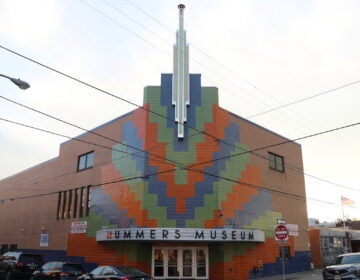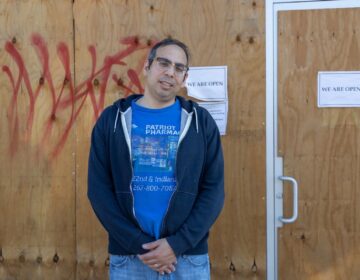West Philly’s sliver of gilded Overbrook Farms mansions tapped for historic protection
The Philadelphia Historical Commission is expected to rule on a historic district in Overbrook Farms, limiting development in the turn-of-the-century community.
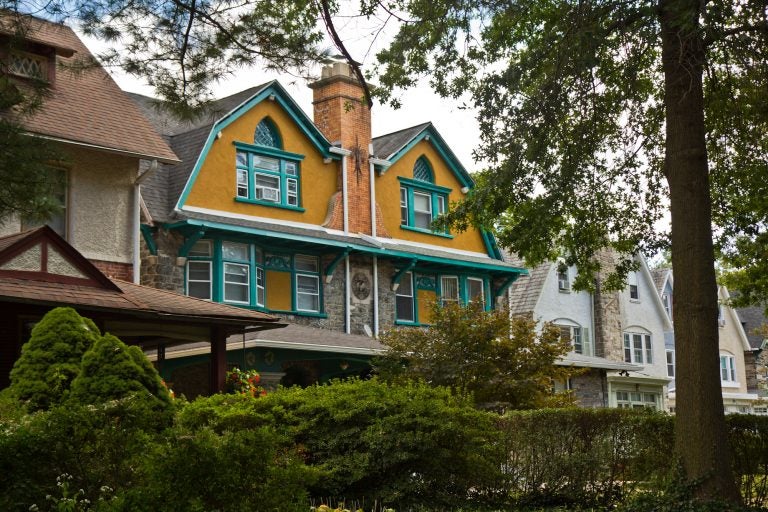
Homes on Sherwood Road in Overbrook. (Kimberly Paynter/WHYY)
On the northwestern edge of Philadelphia, a sliver of a neighborhood with hundreds of gilded mansions hugs the border with Montgomery County. Overbrook Farms was built for titans of industry and other elites who deigned to live within city limits but didn’t want their homes to look even a bit like those of ordinary Philadelphians.
The ornate architecture and eclectic design flourishes still stand out, as impressive as anything on the Main Line or in Chestnut Hill. As the super-rich trickled out of the city, the homes were eventually scooped up by those of slightly lesser means and a taste for the venerable.
Yet, the city has never officially recognized those turn-of-the-century buildings as historic. A campaign to designate Overbrook Farms as a protected district shuddered to a halt in 2011 after a storm of protests.
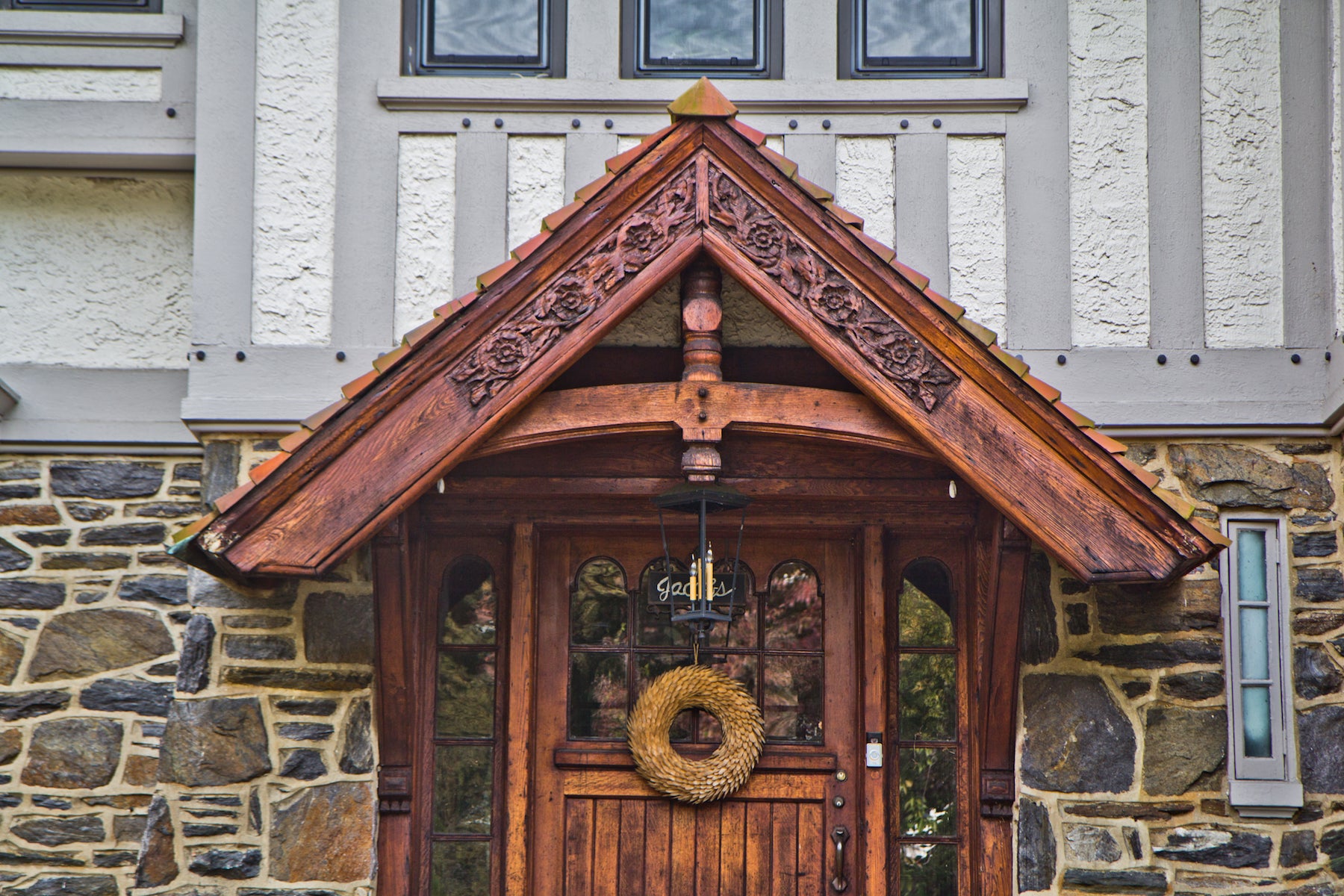
For eight years, the effort sat in limbo, a permanent fixture on the Historical Commission’s agenda. But next month, the city agency will finally issue a ruling on the 501 buildings covered by the proposed district.
Many observers expect the commission to approve the preservation effort. The move would enshrine protections greatly limiting property owners’ ability to seriously alter or demolish the buildings without securing special approvals from the city.
The regulation is welcomed by homeowners who don’t want to see their neighborhood’s historic character altered by the tide of redevelopment reshaping other parts of the city.
“I, personally, am in favor of designation because, for the last couple of years, I’ve had a front row seat to what’s coming down the pike in terms of development pressure, density pressure, and market forces in this neighborhood,” said Thaddeus Squire, a homeowner in Overbrook Farms.
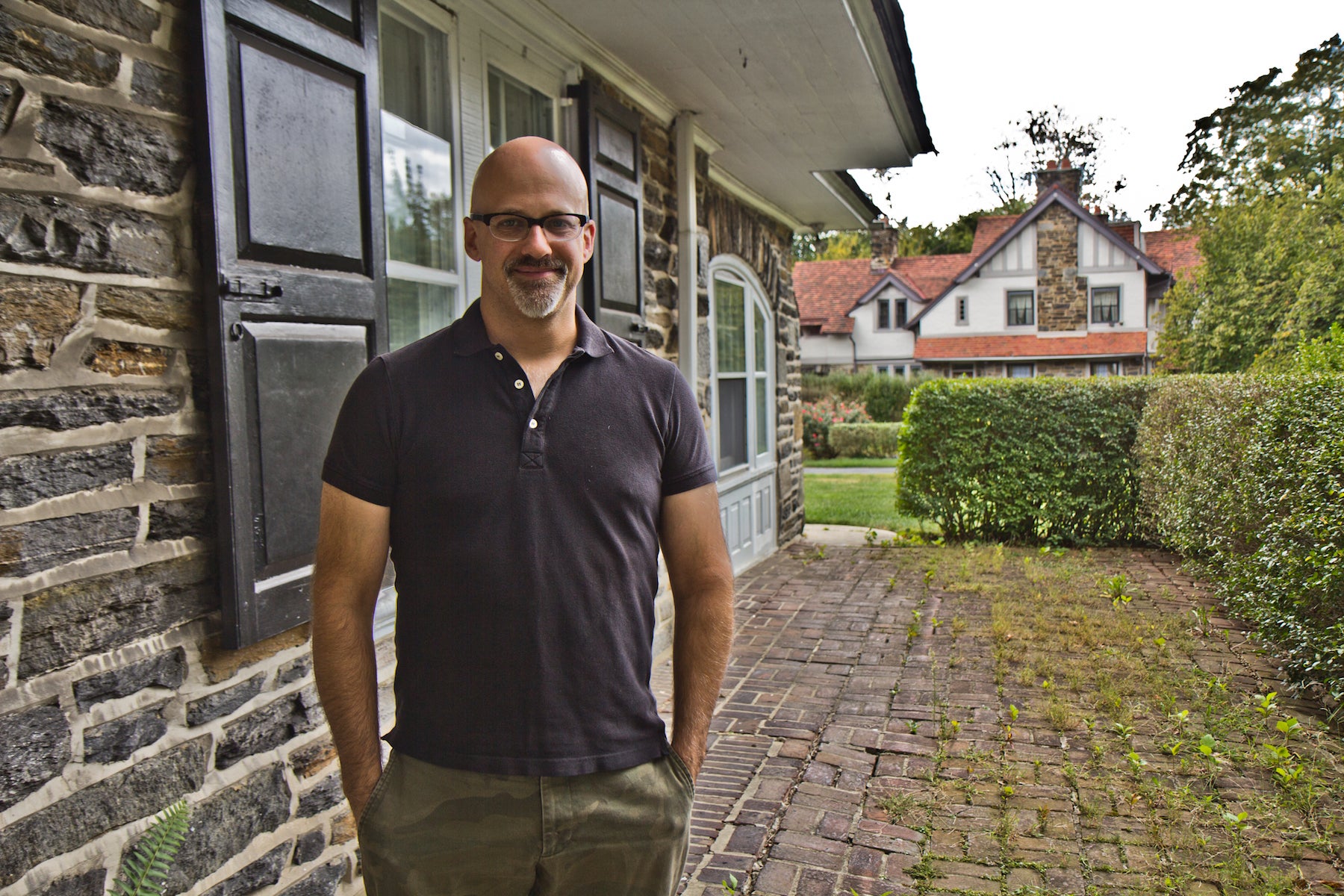
Preserving the ‘buildings that give us our identity’
Squire leads the Overbrook Farms Club, one of the oldest civic associations in Philadelphia. But he makes clear that his support for the district is purely personal. Even though the club itself began pushing for the neighborhood to be a historic district in 2004, today it is staying neutral.
The club’s conservatism comes as a reaction to the backlash in 2011 when neighbors who weren’t privy to the group’s preservation agenda got a letter from the Historical Commission about the impending protections. The missive bore the news that their properties could no longer be significantly changed or torn down without permission from the city.
Opponents barnstormed public meetings, in one case calling the preservationists “Nazis” and demanding that Councilmember Curtis Jones intercede on their behalf. Noted DJ and composer of the “Mad Men” theme song, Ramble John Krohn (better known as RJD2), helped spearhead the campaign.
“It started at the time of the mortgage crisis when people couldn’t pay their bills and the club wanted everyone to spend a lot more money to repair what needed to be repaired,” recalled Suzanne Kelly, who has lived in the neighborhood since 1985, and is still opposed to historic protections there.
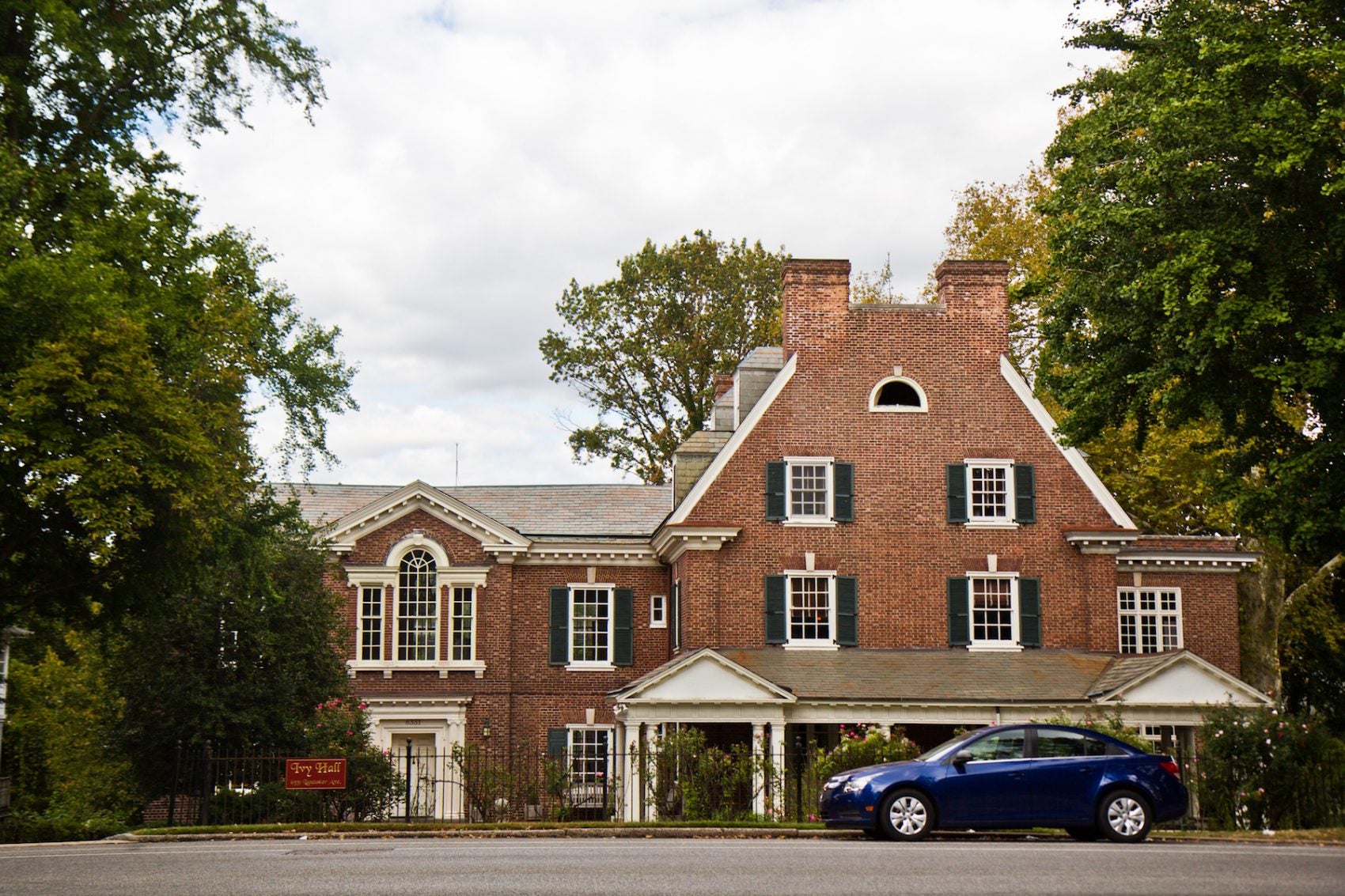
For some property owners, the neighborhood’s historic architecture is part of its appeal, but they still didn’t want to be constrained by city regulations about where they could place solar panels or what kind of windows they could use. Jones agreed and asked the commission to pause consideration.
But the quirk of the Overbrook Farms nomination’s fate is that the neighborhood has enjoyed preservation protection all this time anyway. Any district or property on the commission’s agenda and awaiting a ruling is subject to its regulations.
“[A positive ruling in October] formalizes the standing oversight of this historic district,” said Patrick Grossi, advocacy director of the Preservation Alliance of Greater Philadelphia. “It would clarify what has been a long-standing and unique situation for the Historical Commission.”
One change in the eight years since Overbook was last considered by the agency is the perspective of Jones: The District 4 representative has become a preservationist.
“Modern development often lacks historical context. You can go to many places in our nation now, spin yourself around three times, and not know where the hell you are,” said Jones. “[Preserving] these mansions [ensures we won’t] erase the significant historical buildings that give us our identity.”
Jones said recent legislation offering assistance for those seeking to save buildings helped him change his mind on historic preservation, as did a growing appreciation of older buildings in his neighborhoods and conversations with former Mayor John Street, who has worked to save many historic buildings in Philadelphia.
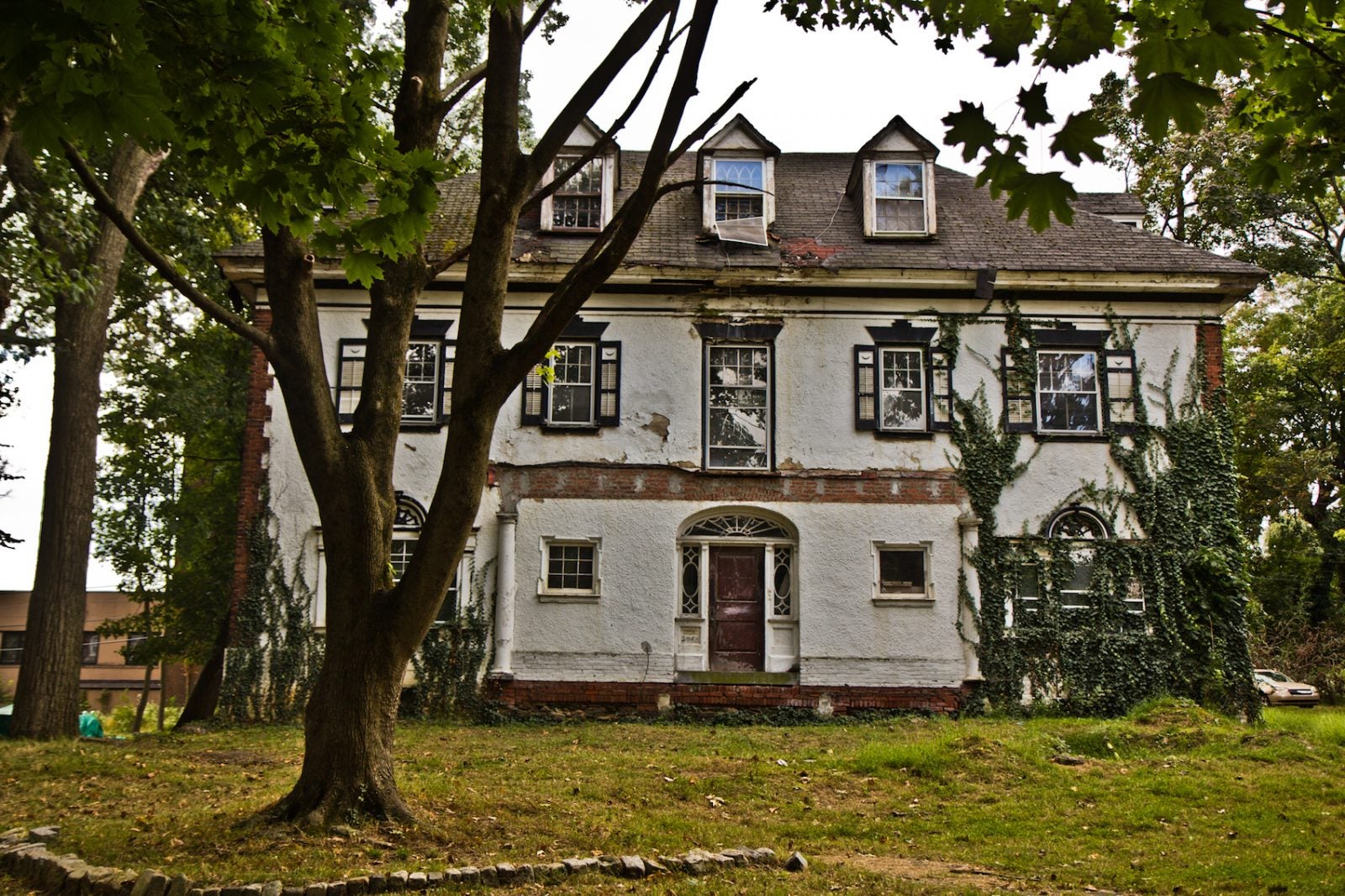
While City Council has no official power over historic preservation, district members are given a lot of leeway over land use and zoning in their territory and their perspective carries a lot of weight. They can also enact bills that help or hinder preservation efforts.
For instance, in 2018, Jones supported the creation of a 188-building district on Ridge Avenue through a one-year demolition moratorium he enacted.
Keeping the community in the loop
As the date nears when the Historical Commission can make Overbrook Farms an official district, Squire’s community association has tried to keep everyone in the loop. They even asked the commission to delay consideration so that they had time to launch an educational campaign.
Before the commission sent out notices to affected property owners, the club papered the neighborhood with explainers about what the historic district means for homeowners and what resources are available for those who feel unable to keep up with its dictates. (The Q&A is also available on the group’s website.) Two public meetings have been held, each attracting 40 to 50 attendees.
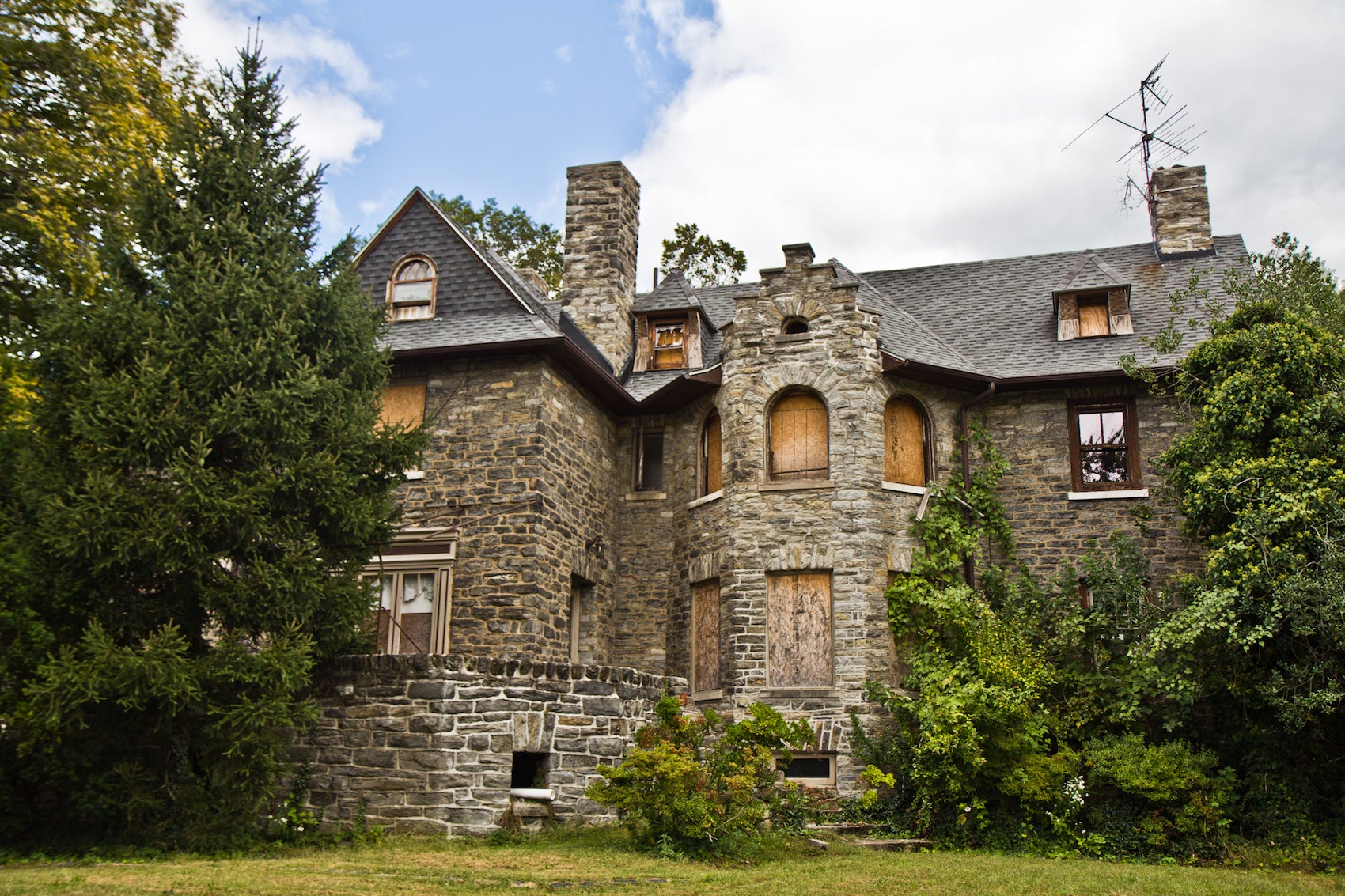
Squire said he is keeping his opinions about preservation distinct from club business, but he firmly believes that enshrining the historic district is essential to the future of the neighborhood.
“I’ve fielded a number of phone calls and emails from developers asking what’s up with the designation,” said Squire, “because they’re interested in purchasing houses and they want to know if they can be torn down and rebuilt with new houses or subdivided.”
That question cuts to the heart of the opposition from people like Kelly, who still see the district as an attack on property rights.
“This is a free country, not a dictatorship, a democracy,” said Kelly, the longtime opponent, who argues that proper polling of the neighborhood was not conducted. “We were not asked. I want to be heard. You cannot impose such a sanction on us. It was the will of the [Overbrook Farms] club to do it, not us.”
Similar arguments rallied neighbors against the other major neighborhood-level historic districts in the aughts. After Overbrook Farms was put on hold, no new districts were approved for seven years, until 2017. Even after that period ended, the commission has remained cautious, approving only small districts, including one with only eight properties.
If Overbrook Farms is officially approved, it will be the largest historic district added to local register since Old City, which won protections for an 800-building district in 2003.
The preservation win could indicate a changing tide on the issue. After all, one of the most ferocious opponents of neighborhood-level historic districts will be out of power in three months.
“I would be supportive of a Spruce Hill Historic District,” said Jamie Gauthier, who defeated Councilmember Jannie Blackwell in May’s Democratic primary. Gauthier takes office in January. “The 3rd district is a hot place for development and that puts at risk some of our historic properties that our neighborhoods holds near and dear.”
WHYY is your source for fact-based, in-depth journalism and information. As a nonprofit organization, we rely on financial support from readers like you. Please give today.





